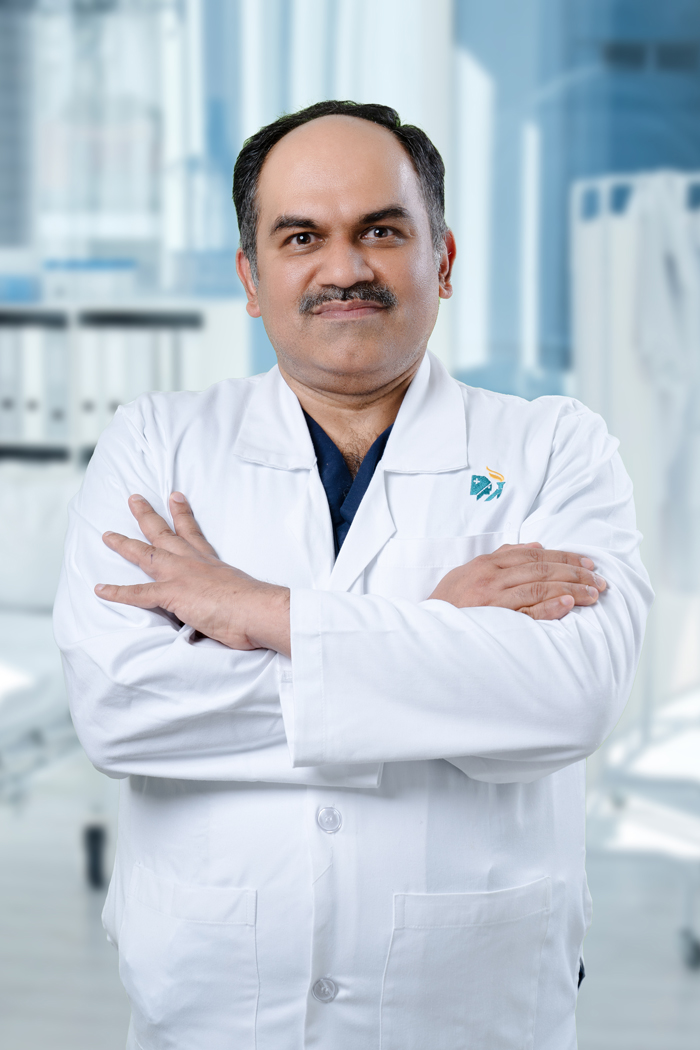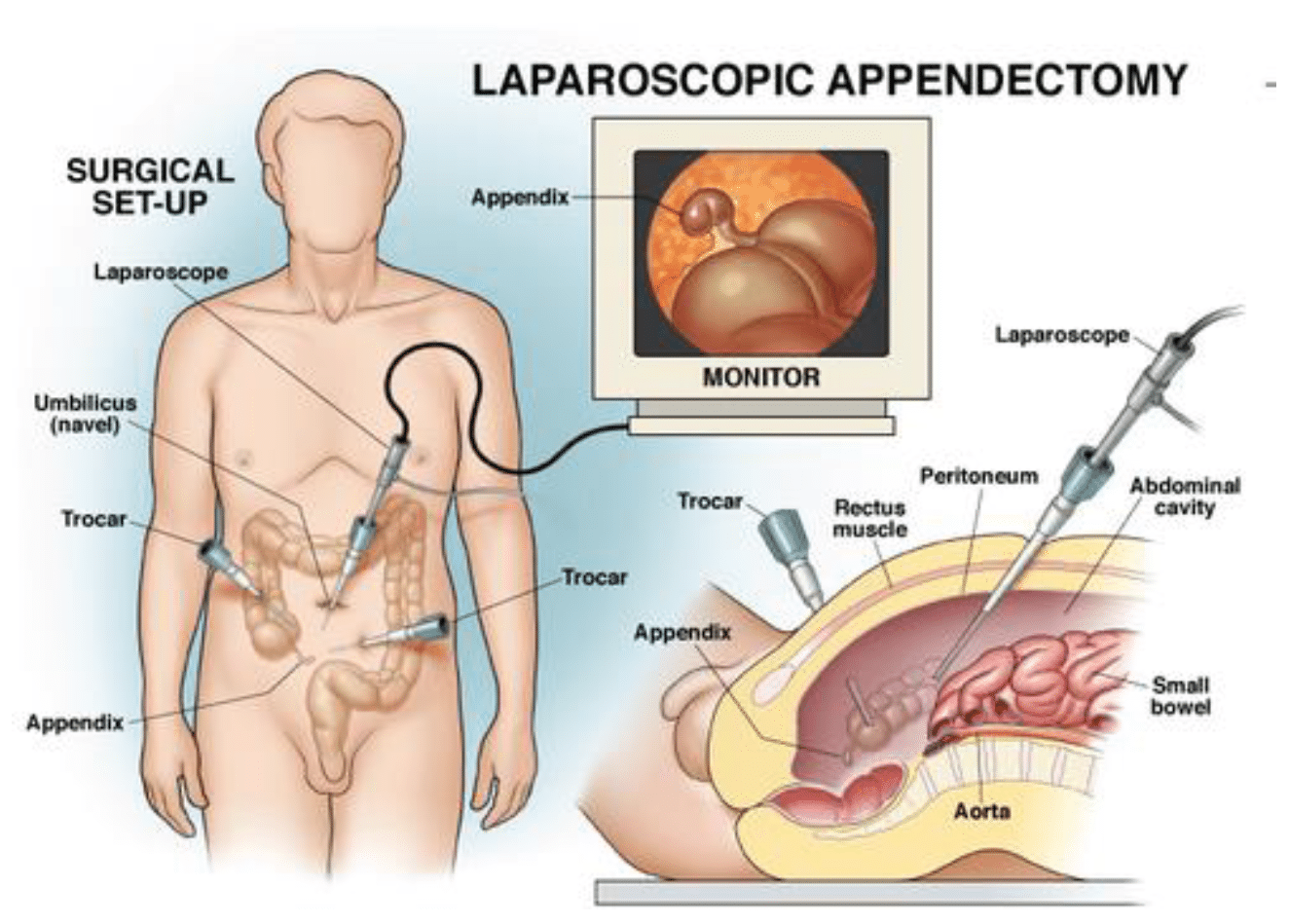What is General Surgery?
General surgery involves a range of surgical procedures to treat various conditions related to the abdominal organs, soft tissues, and digestive system. It is essential for addressing emergencies such as appendicitis and hernias, which often require immediate surgical intervention.
- Appendectomy: Surgical removal of the appendix, often due to infection (appendicitis).
- Hernia Repair: Surgery to correct a hernia, a condition where an organ or tissue pushes through the muscle or connective tissue.
Appendectomy: What You Need to Know
Appendectomy is a common surgical procedure for removing the appendix, usually performed when the appendix becomes inflamed or infected (appendicitis). This condition can be life-threatening if left untreated. The procedure is typically done through traditional surgery or minimally invasive laparoscopic surgery.
Symptoms of Appendicitis:
- Abdominal pain (starting around the navel and shifting to the lower right abdomen)
- Loss of appetite
- Nausea and vomiting
- Fever
- Inability to pass gas or stool
Hernia Repair: What You Need to Know
A hernia occurs when an organ or tissue protrudes through a weak spot in the muscle or connective tissue. Hernia repair surgery involves pushing the protruding tissue back into place and strengthening the muscle wall.
Symptoms of a Hernia:
- A visible bulge in the abdomen or groin
- Pain or tenderness at the site of the bulge
- Difficulty lifting or straining
- A feeling of heaviness or pressure
Procedure for Appendectomy and Hernia Repair
Appendectomy Procedure:
- Diagnosis: The doctor will evaluate your symptoms, physical examination, and imaging results (e.g., ultrasound or CT scan).
- Anesthesia: General anesthesia is administered before the surgery.
- Surgical Approach: Depending on the severity and location, the surgeon may use a traditional open surgery or a minimally invasive laparoscopic approach.
- Post-Surgery: After surgery, the patient may require a short hospital stay for monitoring and recovery.
Hernia Repair Procedure:
- Diagnosis: Diagnosis is made based on a physical exam, and imaging may be used to assess the hernia’s size and type.
- Anesthesia: General or local anesthesia is administered depending on the type of surgery.
- Surgical Approach: The surgeon will use either an open surgery technique or a minimally invasive laparoscopic approach.
- Recovery: After the surgery, patients can usually return home the same day, with a follow-up visit to ensure healing.
Advanced Techniques in General Surgery
- Laparoscopic Surgery: Minimally invasive techniques using small incisions, which offer faster recovery, less pain, and reduced risk of complications.
- Robotic Surgery: The use of robotic systems for precision surgeries, enhancing recovery time and reducing complications.
- Mesh Repair for Hernia: A modern approach that involves inserting a mesh to strengthen the area after repairing a hernia, which reduces the risk of recurrence.
Why Choose India for General Surgery?
India is home to world-class surgical expertise, offering a high standard of care at affordable prices compared to many Western countries.
Key Benefits:
- Highly Skilled Surgeons: Indian surgeons are known for their expertise, with many being trained internationally.
- Advanced Medical Technology: Hospitals in India are equipped with state-of-the-art technology for diagnostic and surgical procedures.
- Cost-Effective: Surgery costs in India are significantly lower without compromising on quality, making it an attractive destination for medical tourists.
- Comprehensive Care: Patients receive holistic care, including pre-operative and post-operative support, along with follow-up consultations.
Why Choose Healtour Solutions for General Surgery?
Healtour Solutions connects patients to the best hospitals and surgeons in India for general surgery, ensuring that they receive high-quality, cost-effective care.
Benefits of Choosing Healtour Solutions:
- Expert Surgeons: We collaborate with top-rated surgeons who specialize in appendectomy and hernia repair.
- Personalized Treatment Plans: Tailored surgical care designed to meet your specific health needs.
- Affordable Prices: Access to world-class healthcare at competitive prices.
- Smooth Process: We assist you through every step of the medical tourism journey, from initial consultation to post-operative care.
Cost of General Surgery in India
The cost of appendectomy and hernia repair surgery in India is significantly lower compared to other countries.
- Appendectomy: The cost ranges from INR 40,000 to INR 1,00,000 (USD 500 to USD 1,200), depending on the type of surgery (open or laparoscopic) and the hospital.
- Hernia Repair: The cost typically ranges from INR 30,000 to INR 1,50,000 (USD 400 to USD 1,800), based on the surgical method and the severity of the hernia.
Factors influencing the cost include the complexity of the surgery, the choice of hospital, and the type of anesthesia used.
Benefits of General Surgery
- Relief from Pain: Surgery helps eliminate the pain and discomfort caused by appendicitis or hernias.
- Faster Recovery: Minimally invasive techniques like laparoscopic and robotic surgery offer quicker recovery times and minimal scarring.
- Prevention of Complications: Timely surgery helps prevent complications such as infection, gangrene (in appendicitis), or strangulation (in hernias).
- Improved Quality of Life: Post-surgery, patients often experience improved health and a return to normal activities.
Post-Procedure Care
- Appendectomy: After surgery, patients may need to follow a soft diet initially, with gradual reintroduction of solid foods. They should avoid strenuous activities for several weeks.
- Hernia Repair: Rest is advised for the first few days. Patients should avoid lifting heavy objects for 4 to 6 weeks and follow a specific exercise routine to strengthen the abdominal muscles.
Frequently Asked Questions (FAQs)
- What is the recovery time after appendectomy?
Recovery typically takes 1 to 3 weeks, depending on the type of surgery (open or laparoscopic).
- Is hernia surgery painful?
Most patients report mild discomfort after hernia repair, which can be managed with pain medications.
- Can hernias recur after surgery?
While rare, hernias can recur if not properly repaired. The use of mesh during surgery reduces this risk.
- How long will I stay in the hospital after the appendectomy?
Most patients are discharged within 1 to 2 days, depending on recovery.
- Can I drive after hernia surgery?
It’s advisable to avoid driving for a few days to a week after surgery to avoid straining the abdominal muscles.
- Are laparoscopic and robotic surgeries better than traditional methods?
Yes, they offer less pain, smaller incisions, and faster recovery times.
- Will I need any follow-up visits after surgery?
Yes, follow-up visits are essential to monitor recovery and ensure there are no complications.
- Is general anesthesia used for appendectomy and hernia surgery?
Yes, both procedures typically require general anesthesia for patient comfort.
- How soon can I return to work after hernia repair?
Depending on your job, you may return to work within 1 to 2 weeks after surgery.
- Are there risks associated with general surgery?
As with any surgery, there are risks such as infection or bleeding, but these are minimized with proper care and skilled surgeons.



